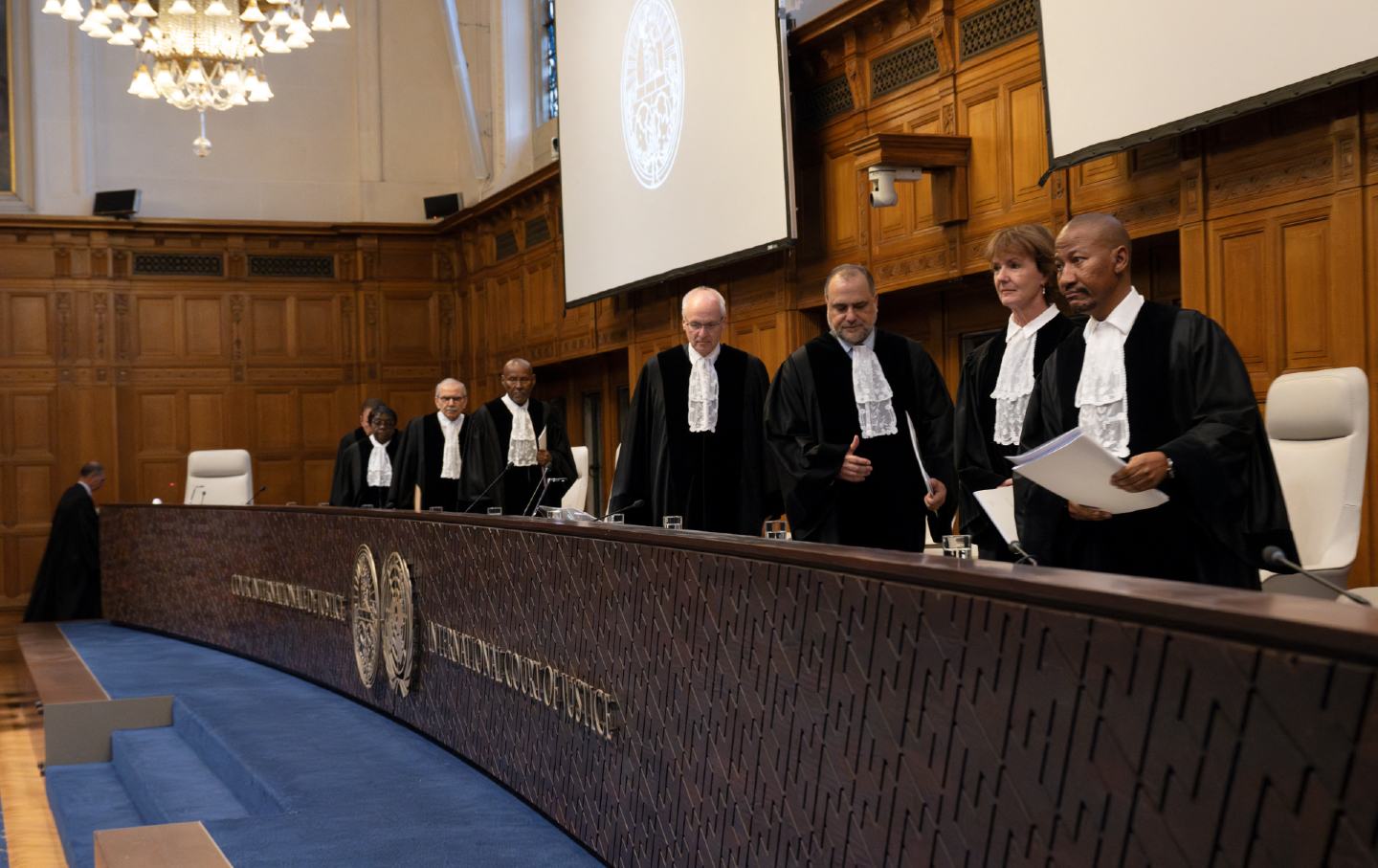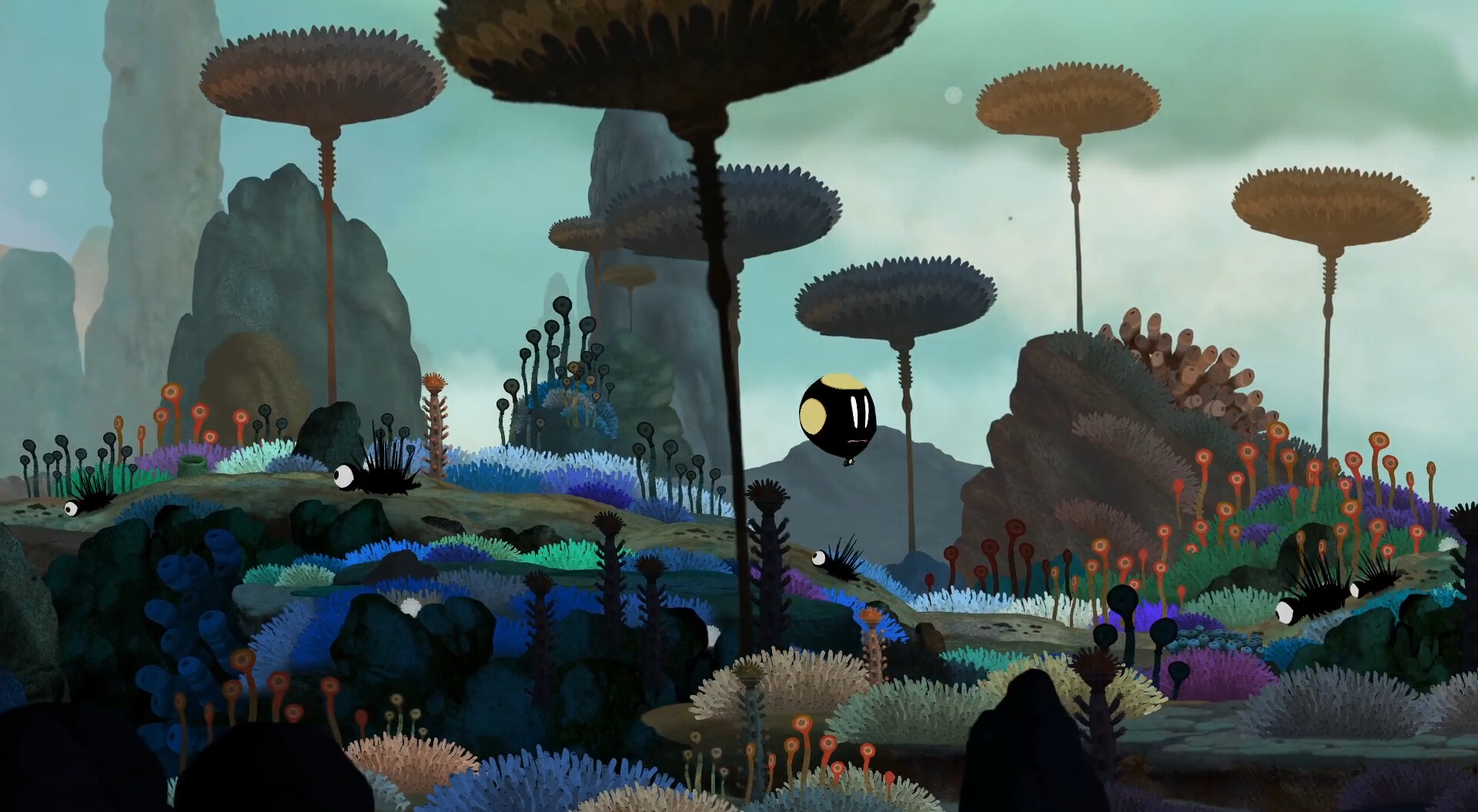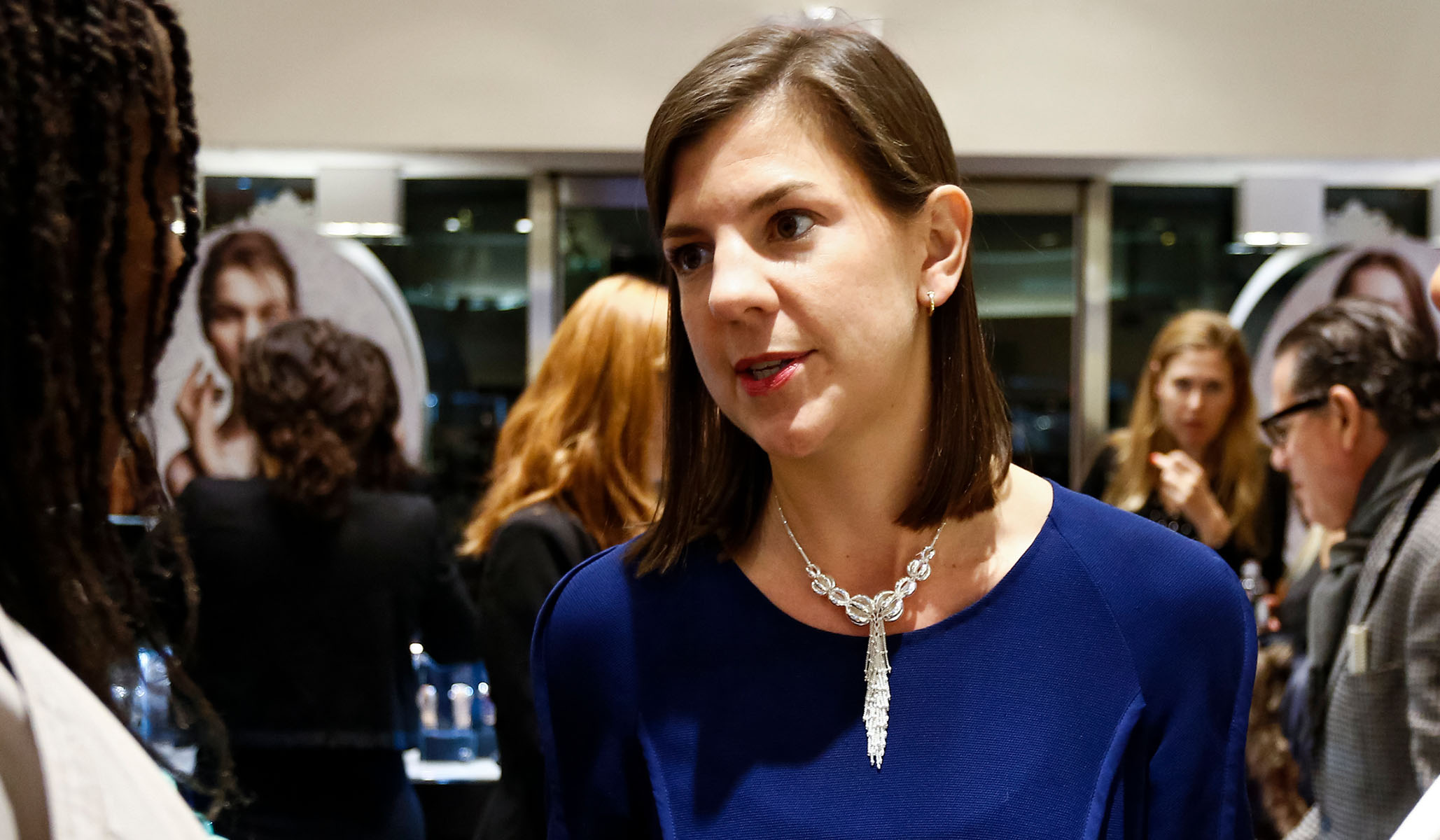Global courts challenge Israeli action in Gaza.
If the past few weeks have been devastating for the people of Gaza, they have also marked a historic turning point in efforts to hold the Israeli government and its leaders accountable for their crimes.
The announcements in The Hague, four days apart, by International Criminal Court Prosecutor Karim A.A. Khan seeking arrest warrants for Israeli and Hamas leaders and by the International Court of Justice ordering Israel under the Genocide Convention to halt its military offensive in Rafah, were a powerful one-two punch to Israel’s decades-long impunity.
For 15 years, Palestinian attempts to invoke the ICC—for war crimes during the 2008 “Cast Lead” operation that killed more than 1,400 Gazans, for prohibited settlements on the West Bank, for apartheid and the like—had gotten the slow walk from Khan and his predecessors Fatou Bensouda and Luis Moreno Ocampo, and the common wisdom was that even in the face of Israel’s latest onslaught in Gaza, the politically astute Khan (a British barrister elected with UK and US support) was reluctant to cross a historic US red line with an indictment of Israeli officials. Yet Khan’s bold May 20 request against Prime Minister Benjamin Netanyahu and Defense Minister Yoav Gallant—for crimes including starvation, extermination, and persecution “as part of a widespread and systematic attack against the Palestinian civilian population pursuant to State policy”—shows that he has taken the measure of the situation.
The May 24 ICJ decision also crossed a threshold. Since South Africa’s first application to the “World Court” for emergency measures in December, it had been asking the judges to order Israel to halt military operations. This the court was reluctant to do so, since its orders can only bind entities before it, and because Hamas, the other party to the conflict, was not a party to the ICJ case. Yet in the face of a fourth application by the tenacious South Africans, and responding to the worsening humanitarian catastrophe, the court felt compelled to order Israel—by a 13-2 vote that included all its western judges—to “immediately halt its military offensive, and any other action in the Rafah Governorate, which may inflict on the Palestinian group in Gaza conditions of life that could bring about its physical destruction in whole or in part.” While Israel sought refuge in the placement of the second comma in the above sentence, the legally binding ruling in fact left Israel with very little wiggle room. Its attack only two days later, which set ablaze a crowded refugee camp in Rafah, killing 45 Palestinians, showed in any event just how much it would not be restrained by the ICJ’s ruling.
The unprecedented actions by the world’s two top international courts had hardly sunk in when The Guardian and the Israel-based magazines +972 and Local Call revealed on May 28 that the Israeli government, over the course of nine years, had shamelessly “deployed its intelligence agencies to surveil, hack, pressure, smear and allegedly threaten senior ICC staff in an effort to derail the [ICC’s] inquiries” as they inched along. In a campaign run by Netanyahu’s close ally Mossad director Yossi Cohen, with which the prime minister was “obsessed, obsessed, obsessed,” Israel routinely spied on the phone calls made by former prosecutor Bensouda and her staff with Palestinians.
In one incident, unidentified men visited Bensouda outside of her home and handed her an envelope of cash. Other agents allegedly threatened her and her family Mafia-style, saying, “You should help us and let us take care of you. You don’t want to be getting into things that could compromise your security or that of your family.” They also reportedly mounted a sting operation against her husband. They even enlisted Democratic Republic of the Congo President Joseph Kabila in their efforts to recruit or extort Bensouda.
Current Issue

Israeli surveillance had been ongoing even in recent months, providing Netanyahu advance knowledge of Khan’s intentions. According to the Guardian, intercepted communication suggested that Khan wanted to issue warrants against Israelis but was under “tremendous pressure from the United States.”
A day after The Guardian’srevelations, an investigative reporter with Israel’s leading progressive newspaper, Haaretz, described how, two years ago, security officials used emergency powers to prevent the paper from reporting these same efforts by Mossad chief Cohen to threaten Bensouda.
The Guardian also reported that Israeli surveillance operatives were asked to find out which specific incidents were being examined by the ICC so that Israeli investigative bodies could “open investigations retroactively” in the same cases. The core ICC principle of “complementarity” provides that states have the primary competence to investigate and prosecute crimes and that the ICC should step in only when national authorities are “unwilling or unable” to do so. The leading Israeli human rights group B’Tselem, however, has called these reactive Israeli probes “whitewashed investigations,” shams designed only to prevent international action.
The Guardian’s revelations thus undermine the American attack on the prosecutor’s requests. The long-standing US position that the ICC simply had no jurisdiction to investigate Israeli nationals because Israel is not a state party to the ICC—a claim that runs contrary to the ICC’s governing Rome Statute—had already been crippled by the bipartisan enthusiasm at last year’s indictment of Vladimir Putin of Russia, which is also not a state party. The US objection that Palestine is not a state at all, and therefore not entitled to invoke ICC jurisdiction, had previously been rejected by a panel of ICC judges and further weakened by the growing international recognition of Palestine. That left the argument of “complimentary,” which was highlighted by Secretary of State Antony Blinken in his response to the warrant requests. Blinken complained that Khan, in his “rush” to seek the warrants, had not “allow[ed] the Israeli legal system a full and timely opportunity to proceed,” and that Israel “has ongoing investigations into allegations against its personnel.” But ICC judges have ruled that to satisfy the complementarity principle, “the national investigation must cover the same individual and substantially the same conduct as alleged in the proceedings before the Court.”
In other words, Israel would have to be investigating Netanyahu and Gallant for crimes such as starvation, extermination, and persecution as state policy. Whitewashed probes of rogue personnel will no longer suffice to forestall a true reckoning for Israel’s conduct.
Dear reader,
I hope you enjoyed the article you just read. It’s just one of the many deeply-reported and boundary-pushing stories we publish everyday at The Nation. In a time of continued erosion of our fundamental rights and urgent global struggles for peace, independent journalism is now more vital than ever.
As a Nation reader, you are likely an engaged progressive who is passionate about bold ideas. I know I can count on you to help sustain our mission-driven journalism.
This month, we’re kicking off an ambitious Summer Fundraising Campaign with the goal of raising $15,000. With your support, we can continue to produce the hard-hitting journalism you rely on to cut through the noise of conservative, corporate media. Please, donate today.
A better world is out there—and we need your support to reach it.
Onwards,
Katrina vanden Heuvel
Editorial Director and Publisher, The Nation




